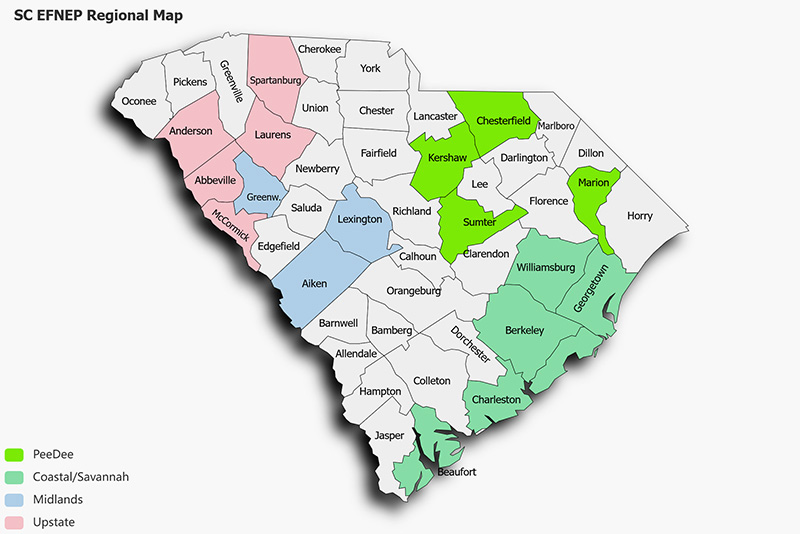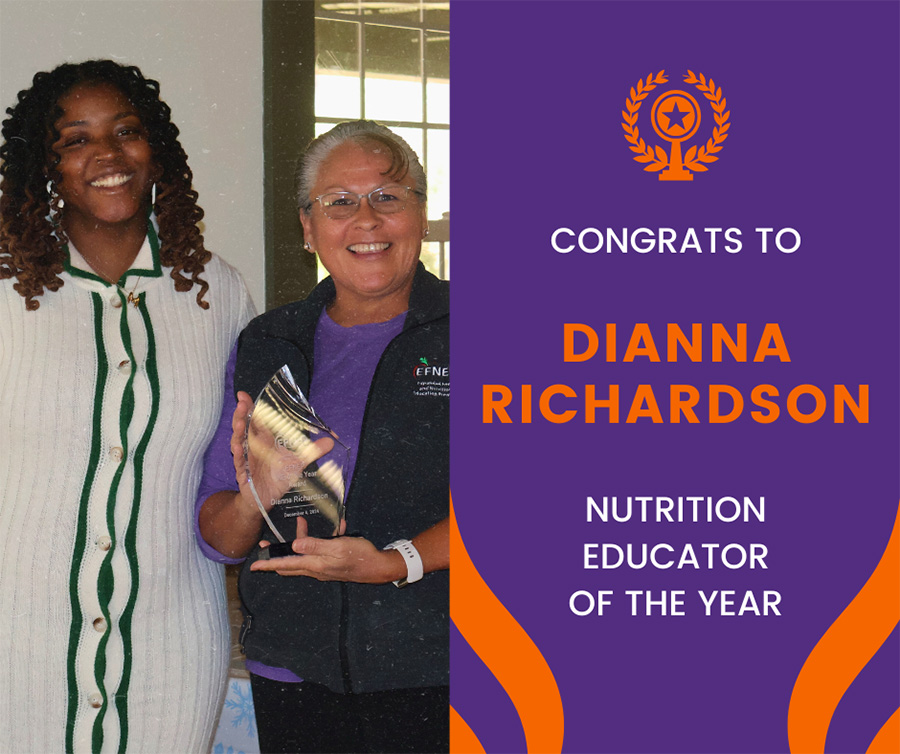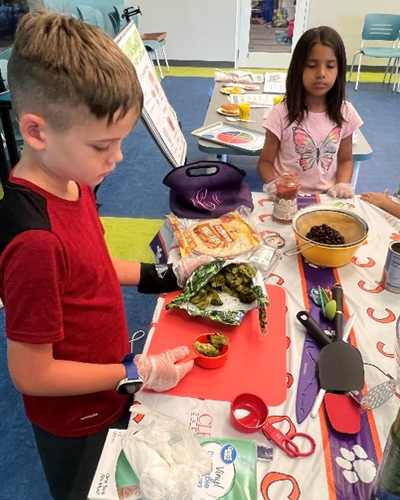The Expanded Food and Nutrition Education Program (EFNEP) EFNEP assists limited-resource audiences in acquiring the knowledge, skills, attitudes, and changed behavior necessary for nutritionally sound diets, and to contribute to their personal development and the improvement of the total family diet and nutritional well-being.
-
History
EFNEP arose out of societal concern over millions of Americans living in poverty and existing efforts that focused on distributing excess agricultural commodities were insufficient in addressing these concerns. Between 1962-1967 the USDA funded Federal Extension Service (FES) projects in Alabama, Massachusetts, Missouri, Rhode Island, and Texas to explore how to reach and teach low-income audiences.
The success of this project resulted in Congress allocating Smith-Lever 3(d) funds for the program in 1969.
By 1974, the program became widely known as the Expanded Food and Nutrition Education Program (EFNEP). Since then, EFNEP has successfully addressed critical societal concerns by employing Nutrition Educators and influencing nutrition and physical activity behaviors of low-income families, particularly those with young children. Through a community-based, relationship-driven, hands-on educational approach, EFNEP has directly impacted economic, obesity, and food insecurity challenges that hinder the health and well-being of this nation. For over 50 years, Clemson EFNEP has served communities across South Carolina. EFNEP is a Federal Extension (community outreach) program that currently operates through the 1862 and 1890 Land-Grant Universities (LGUs) in every state, the District of Columbia, and the six U.S. territories - American Samoa, Guam, Micronesia, Northern Marianas, Puerto Rico, and the Virgin Islands.
- EFNEP Locations in South Carolina

“These students had so much fun during the cooking portion of our lessons. So often, they would think the recipe didn’t sound good because it was healthy. However, once they made it, they loved it. They were eager to take the recipes and knowledge home to share with their families. I was also encouraged by the number of students who committed to being more physically active after admitting that they often spent too much time on their phones/social media. They were truly eager to learn and put the information into practice. It was awesome to see the students’ confidence in cooking skills grow throughout my time there. Instead of these teens resorting to making a box of Kraft mac-n-cheese, they are now fully capable of creating more healthy snacks/meals on their own.”
Nutrition Educator


Nutrition Educators are recognized at the annual retreat for their hard work and dedication to their adult and youth programs, as well as their support of their team members.
Outcomes
Improved diets and nutritional welfare for the total family
Increased knowledge of the essentials of human nutrition
Increased ability to select and buy food that satisfies nutritional needs
Improved practices in food production, preparation, safety, and sanitation
Improved ability to manage food budgets and food resources such as SNAP benefits
Increased rates of physical activity

Adult participants in EFNEP learn how to:
- Plan quick, easy, and healthy meals for their family.
- Prepare tasty and nutritious recipes through cooking classes.
- Keep foods safe.
- Save money on food throughout the month.
- Be more physically active.
EFNEP children and youth learn to:
- Develop healthy eating habits.
- Choose healthy snacks.
- Practice safe food handling.
- Increase physical activity.





